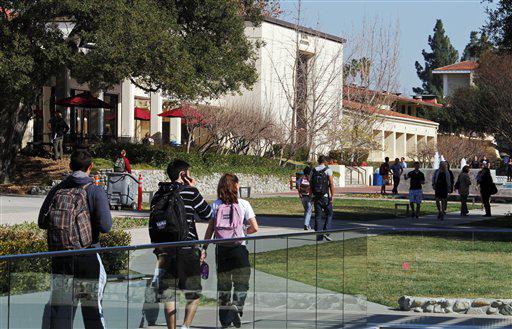
By Tyler J. Dikun
How often have we been reminded about the rising cost of attending a four-year university? An annual six percent increase in tuition has created the sad, yet commonplace problem of graduates having to work off thousands of dollars in student loans at a time when landing a well-paying job has become increasingly difficult. Now, more than ever, picking the right college requires knowledge of the potential return on investment. Parents, as well as those students who must foot the bill themselves, must be assured they are not simply paying for a meaningless degree.
Evidence of this need the lost generation of the late 2000s (the height of the recession) in which 60 percent of college graduates could not find a full-time job in their career fields. They did not invest over $200,000 to come out of college waiting tables. At the tail end of this great recession, President Obama has now called for a new ranking system for American colleges and universities.
Just last month, the Obama administration made public its plan to measure the strength of a university based on graduation rate, debt after graduating and post-graduation success. Those schools that receive a high rating will be granted more student aid than those who receive a low rating. The president’s intention is clear: the American people need to be well-informed in all aspects before making such an expensive decision. After all, the average American begins preparing for their child’s college education years before deciding on a school. Just as a collegiate athlete might choose the program he or she believes will best propel him or her into the professional ranks, the average student must think in this exact manner. Quite simply, it is no longer enough to just earn a college degree; the world is far too competitive. The new rating system proposed by President Obama fills an existing void in the decision process for millions of prospective college students nationwide. The problem lies in the logistics of this new plan.
As president and CEO of the United Negro College Fund, Michael J. Lomax alludes to some of the problems in his Op-ed titled “A Proposed Federal College Rating System Could Hurt Disadvantaged Students.” According to his article, it is fundamentally wrong to group all of the more than 7,000 American colleges into one category for comparison. A college with a student body made up of disadvantaged students cannot be compared with an elite college of students who are more privileged. The government does not have the right to reduce financial aid to a university or college for accepting students who may have been born into a difficult environment.
This then manifests the need for colleges and universities to raise admission standards and ultimately drive out the less fortunate. In a time when the gap between the rich and poor is expanding, the president’s rating system appears to be adding fuel to a growing economic disparity.
As students of Fordham University, we understand too well the cost of going to a top-tier university. Yet, we also understand that being situated in New York City, with all of its teeming opportunities, is priceless.
I would surmise that if this new rating system goes into effect, Fordham would be minimally affected as a high-ranking university. It is those schools that are comprised mainly of disadvantaged students that may lose vital financial aid. America’s higher education system is flawed, but the answer does not lie in punishing those institutions whose statistics are reflected as less than favorable based on those who attend them. Earning a college degree is crucial in our present-day society if we want to climb the economic ladder.
Taking this privilege away from anyone is not the solution.
Tyler J. Dikun, FCRH ’18, is undecided in his major from Wycoff, NJ.










































































































































































































